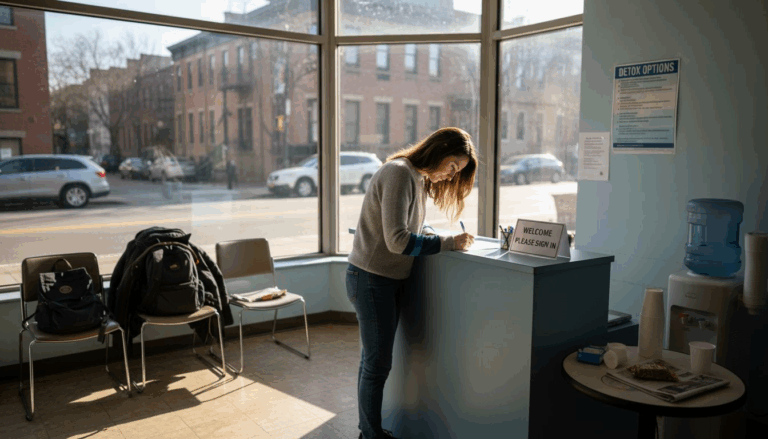Are you or someone close to you struggling with mental health and/or substance abuse? If so, it’s important to take the necessary steps toward recovery as soon as possible. However, navigating the world of treatment options can be overwhelming. That’s why we are here to provide guidance on intensive outpatient programs (IOP).
At Glendora Recovery Center, an IOP provides intensive support in the form of individual, group, and/or family therapy while allowing you to remain living at home during treatment. Participants may continue with work, school, and their regular everyday activities but are expected to attend treatment at the facility during the day, evenings, or on weekends. IOPs generally aim to provide a higher level of care than standard outpatient therapy but also a less intensive level of care than a full residential program.
Through this guide, we will cover the essential topics surrounding an intensive outpatient program, including its benefits, how to transition from an inpatient program into an IOP, and the different treatment components available within the program. With this in mind, we hope to shed some light on a potentially life-saving resource for anyone in need.
Definition of an Intensive Outpatient Program (IOP)
An intensive outpatient program is a type of treatment program that provides a high level of support for those struggling with mental health and/or substance abuse. IOPs combine individual, group, and/or family therapy to encourage the development of coping skills and to help individuals understand their disorders more in-depth. At Glendora Recovery Center, we offer 30, 60, and 90-day treatment depending on the individual’s needs.
This type of program is usually seen as a step down from an inpatient or residential stay; however, it can still provide crucial support for those seeking recovery from substance abuse and mental health issues. IOPs allow individuals to transition out of a more structured setting into one that allows them the freedom to resume their normal lives while still receiving necessary treatment.
Benefits of IOPs for Mental Health and Substance Abuse Recovery
An intensive outpatient program can provide significant benefits to those struggling with mental health and substance abuse:
- Flexible scheduling: IOPs allow participants to attend treatment while still managing work, school, and other everyday activities.
- Individualized care: Each participant’s treatment plan is tailored to their specific needs and goals.
- Accountability: This type of program promotes accountability for recovery through regular, consistent attendance at IOP sessions and meetings.
- Cost-effective: The cost of an IOP can be significantly lower than that of a residential stay or inpatient hospitalization, making it more accessible for those who cannot afford more expensive treatments.
- Supportive environment: IOPs offer a supportive environment with experienced counselors, therapists, and support staff who are dedicated to helping individuals achieve long-term sobriety and recovery.
Transitioning from Inpatient to IOP Treatment
When transitioning from an inpatient program, it’s important to have a plan. This may include creating a schedule for attending group meetings and therapy sessions, as well as identifying potential triggers for relapse and developing strategies for managing them. It’s also important to establish support systems within the community that can help individuals maintain sobriety and prevent relapse.
At Glendora Recovery Center, we understand how difficult this transition can be. Through our intensive outpatient program, we will provide you with resources and assistance throughout your recovery process, ensuring that you receive the best aftercare support.
How an Intensive Outpatient Program Treats Substance Abuse and Mental Health
Our intensive outpatient program at Glendora Recovery Center has two main areas of focus: a substance abuse program and a mental health program.
Substance Abuse Program
- Physical Aspects of Addiction (Disease Concept) – This covers the physical aspects of addiction, including the biological and environmental factors that contribute to substance use.
- Psychological Aspects of Addiction (Thoughts, Beliefs, Perceptions) – This focuses on understanding the psychological aspects of addiction, such as thought patterns and behaviors that contribute to substance use.
- Social Aspects of Addiction (Shame Cycle of Addiction) – This looks at the social aspects of addiction, such as how relationships and social networks influence substance use.
- Identifying and Expressing Feelings – This focuses on analyzing and communicating emotions in a healthy manner.
- Stress Management – This covers techniques for reducing stress, such as mindfulness and relaxation techniques.
- Relapse Prevention and Maintaining Recovery – This focuses on developing strategies for avoiding relapse and maintaining sobriety.
- Anger Management Skill-Building – This covers techniques for managing anger and resolving conflict.
- Family Roles and Dynamics – This looks at the role of family members in addiction and recovery.
- Effects of Alcoholism/Addiction on the Family – This covers the impact of addiction on family members, including communication and dynamics.
Mental Health Program
- Mental Health Conditions – This covers the diagnosis and treatment of mental health conditions, such as depression, anxiety, or bipolar disorder.
- Coping With Feelings and Emotions – This focuses on understanding and expressing emotions in a healthy manner.
- Medications and Physical Wellness – During a mental health IOP, individuals can benefit from safely prescribed medications to treat mental health conditions as well as techniques for improving physical wellness.
- Relationships and Support – This looks at the role of relationships in mental health and offers support for creating healthy connections.
- Healthy Communication and Boundaries – This covers techniques for effectively communicating with friends and family.
- Self-Awareness and Self-Esteem – This focuses on helping an individual understand the self and cultivate a positive self-image.
- Spirituality, Relaxation, and Mindfulness – This addresses an individual’s spiritual needs and offers techniques for relaxation and mindfulness.
- Grief, Loss, and Trauma Resolution – This addresses unresolved grief and trauma, helping individuals move forward in their recovery journey.
- Relapse Prevention – This provides individuals with strategies to prevent relapse and stay on track in their recovery.
- Maintaining Recovery and Wellness – This focuses on helping individuals maintain recovery and overall well-being.
Mental Health & Substance Abuse Intensive Outpatient Program in Glendora, CA
At Glendora Recovery Center, our mission is to provide superior quality care for those struggling with mental health and substance abuse issues. If you or someone close to you can benefit from our intensive outpatient program in Glendora, CA, please contact us today for more information on how we can help.



